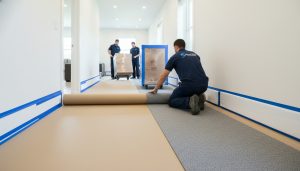Can I get a mortgage if I’m self-employed?
Yes — You Can Get a Mortgage If You’re Self‑Employed (Here’s Exactly How)
Quick answer
Yes. Lenders will approve mortgages for self‑employed borrowers if you prove stable income, have a strong credit profile, and meet debt‑service rules. The path is different than for salaried workers, but it’s predictable and fixable.
Why lenders hesitate
Lenders want certainty. Pay stubs and employer letters are simple. Self‑employment shows fluctuating income. That’s why common hurdles are:
- Income verification — lenders normally want 2 years of consistent earnings.
- Ratios — gross debt service (GDS) ideally under 35% and total debt service (TDS) under 42% in Canada.
- Documentation gaps — missing tax returns or low reported income raise flags.
About 15% of the workforce is self‑employed, so lenders have clear products for this group. You aren’t a special case — you just follow different rules.

How to qualify — specific, actionable steps
- Prepare 2 years of tax returns and Notices of Assessment. Most mainstream lenders require this.
- Use bank‑statement mortgages if your business has cash flow but low reported income. Provide 12–24 months of business and personal statements.
- Improve your profile: raise down payment, reduce consumer debt, and boost reserves. Higher down payments reduce lender risk and improve approvals.
- Check credit score. Aim for 680+ for the best rates. Lower scores are possible but costlier.
- Consider alternative lenders or portfolio lenders if you have non‑traditional income. They approve more flexibly but at higher interest rates.
- Use a mortgage specialist who knows self‑employment documentation and lender overlays.
Data‑driven insight
Mainstream lenders typically require 24 months of self‑employment history. Bank‑statement programs calculate income by averaging deposits and removing business expenses; expect 65–80% of gross deposits to be used as qualifying income after adjustments. Debt ratios remain the gating factor: lower personal debt and a larger down payment directly improve approval odds.
Common scenarios and solutions
- New business (<2 years): Look at alternative lenders or co‑signed mortgages, or build a larger down payment and reserves.
- High revenue but low reported income: Use bank‑statement or stated‑income programs.
- Variable seasonal income: Provide 2 years of complete records and explain seasonality; lenders will average.
Bottom line and next step
You can get a mortgage if you’re self‑employed. You must document income, manage debt, and choose the right lender. The fastest path is working with a local mortgage expert who understands financing and mortgages for the self‑employed.
Ready to move forward? Get a tailored plan and lender match. Contact local realtor and mortgage strategist Tony Sousa: tony@sousasells.ca | 416‑477‑2620 | https://www.sousasells.ca





















